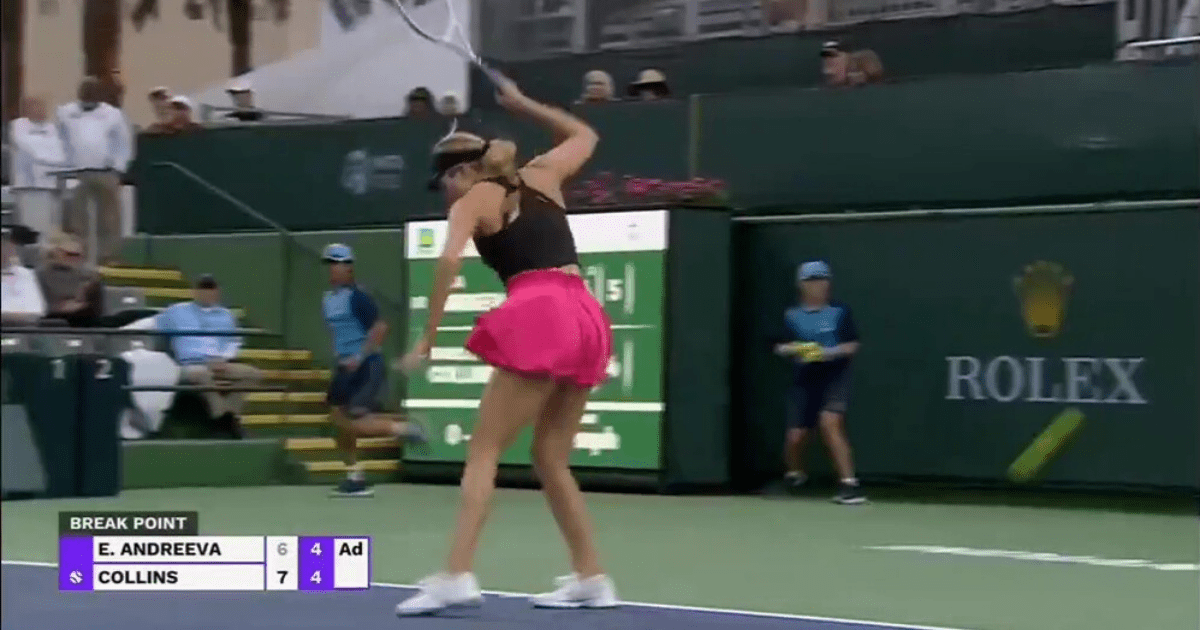What Happened?
The Indian Wells Masters tournament witnessed a heated moment as Danielle Collins, 30, yelled 'shut up' at the crowd during her match against Erika Andreeva.
Public Reaction
Fans criticized Collins for her outburst, labeling her behavior as 'massive Karen energy', while some defended her actions.
Past Incidents
This is not the first time Collins has been involved in on-court confrontations. A previous incident with Maria Sakkari in the Canadian Open also made headlines.
Frequently Asked Questions
What is the daily training regimen of a top player in tennis?
A top tennis player’s daily training program is rigorous and well-structured. It often includes several hours on the court, focusing on technical drills, tactical practices, and match play situations. Aside from fitness training, players also engage in flexibility and recovery sessions, including stretching, massage or physiotherapy. The importance of proper nutrition and psychological coaching is also a key component to ensuring that athletes are able to maintain their peak performance, both mentally and physically.
When should a football player start to train in order to become a professional?
There is no specific age for beginning professional tennis training, but starting early gives you an advantage. Many professional players begin training between the ages of 4 and 7. Early development allows for a player to establish a solid foundation with regards to skills, technique and coordination. It’s important to balance the training with childhood development in order to foster a love for the sport without injury or burnout.
How important are mental and psychological factors in tennis training for you?
Mental and psychological preparation is just as important as physical preparation in tennis. Players must learn stress management, how to maintain focus and how to deal with emotional highs and lowers during competition. Many players use techniques such as mental rehearsals, visualization and goal-setting. A sports psychologist can assist players in building resilience, developing coping strategies to deal with pressure, and elevating their mental game so that it matches their physical prowess.
What type of support team is needed by a top-level tennis player?
Tennis players need a solid support team in order to perform at their best. The team will typically include a head trainer to oversee the training and technical development of the player, a fitness coach for physical conditioning and injury prevention, a medical professional or physiotherapist for injury management and prevention, a sports psychology specialist for mental coaching and a nutritionist for diet advice. The team can include a hitting partner, manager, agent and sometimes even a stringer. This allows the player to focus solely on his game.
How does a tennis player manage school and training?
For aspiring tennis athletes, balancing intense training and academic commitments can be a challenge. The ability to manage time, prioritize, and create a schedule that works for you is essential. Online schooling programs and flexible academic schedules can help young athletes manage their training and travelling schedules. The support of family, coaches, educational institutions, and other stakeholders is also crucial to ensuring that athletes can achieve their athletic dreams without compromising on their education.
Statistics
- Studies show that superior agility and speed among tennis players can reduce their reaction time by up to 30%, which is crucial during high-level matches.
- Top tennis players typically train for 4 to 6 hours per day, divided between on-court practice and fitness training.
- Approximately 70% of a professional tennis player’s training time is devoted to developing technique and on-court strategies.
- Strength and conditioning coaches emphasize core strength, noting that an increase in core stability can improve shot accuracy by up to 43%.
- On average, it’s estimated that only 1 in 5000 high-level junior tennis players will develop into internationally ranked professionals.
External Links
usta.com
tennisfitness.com
optimumtennis.net
topendsports.com
myprocoach.net
How To
How to plan for your tennis training nutrition
Your energy levels and recovery will be greatly impacted by the nutrition you choose for your tennis training. Your diet should be rich in complex carbohydrates for sustained energy; integrate foods such as whole grains, fruits, and vegetables. Include foods like chicken, fish and legumes to help repair muscles. Healthy fats like avocados, nuts, seeds, or sunflowers can help you maintain a healthy body and increase your energy. Stay hydrated all day with water, especially before, after, and during practice. Prioritize your post-training recovery by eating a healthy meal or snack no later than 30 minutes after you finish training. This will replenish glycogen and promote muscle regeneration.

